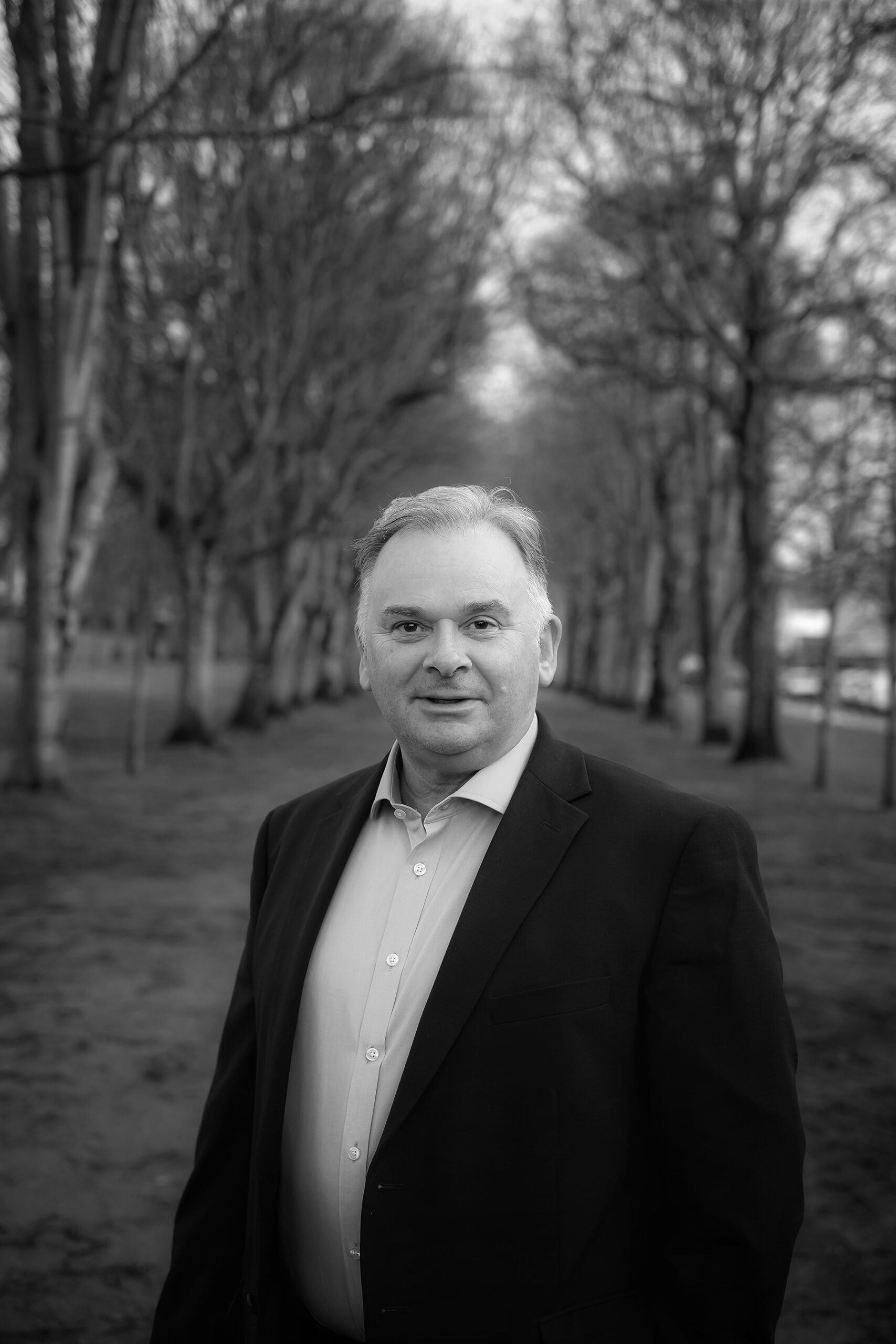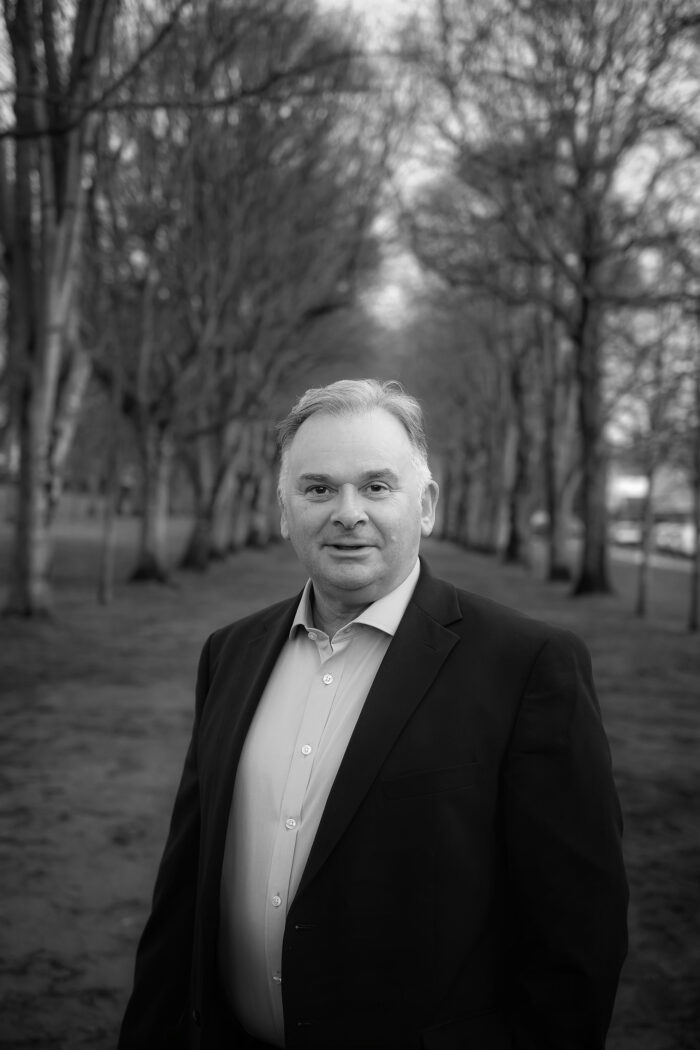Matt: I thought it’s only fair to get my own back on Dave Piesing with his turn in the hot seat about why he’s stepped up his level of involvement as a Consultant here at Tenn. Dave, you’ve recently increased your time commitment with Tenn. Why was that, and what was so attractive from your perspective?
Dave: After 40 years in the corporate fiduciary world, I recently left and was attracted to working for a business growing in a niche space in a very mature private wealth industry. It’s a new angle to the private wealth sector. It’s quite surprising, perhaps, that nothing like this has developed before now. It’s really exciting to get more involved with helping such a niche business grow and exploit the huge market opportunity.
Matt: You say that the private client industry is very mature. How has the industry evolved over your long career? What are clients looking for now compared with at the start of your career?
Dave: The most significant difference is that the industry was built around tax planning for several decades. Tax is now only about the third or fourth most important factor that UHNWIs consider. It’s very important, but it’s certainly no longer top of the list. As a result, asset protection, estate planning, and the orderly succession of family wealth means that there is still a strong demand for using structures to hold the wealth. Those structures even without the same historic tax benefits become longer-term structures, and wealth is tied up in those structures. If you tie up wealth in structures, the ability to access that wealth becomes very important. However, I don’t think that accessing wealth in structures has ever really been thought about, other than making distributions or loans out of trusts rather than keeping and using the wealth that’s inside the structure. This is a way for trustees to put private wealth inside a structure to greater use as a valid alternative to loans or distributions out of the structure, diminishing the asset protection and estate planning benefits because that wealth could otherwise leave the structure. Tenn has, therefore, added a valuable new dimension to wealth structuring. The entire private wealth industry is just so different from even 10 years ago, let alone 20-30 years ago. It just keeps evolving, not just in Guernsey but in all major private wealth jurisdictions. It’s unrecognisable. With Tenn, there’s now the opportunity for better usage of the wealth inside those structures. It’s a critical new element and a significant change.
Matt: Regarding the clients of the current CSP and trustee markets, what are the characteristics seen in modern structures?
Dave: It’s tough to generalise because it varies significantly between different world regions. For example, the factors that would worry someone from Latin America or some African countries, where asset protection, privacy, and confidentiality are crucial, are not quite as applicable to wealthy families and individuals from other parts of the world. A lot of wealth today that’s passing through this enormous period of inter-generational transmission, which is on a scale that we’ll never see again in our lifetimes, is mainly newly-made wealth. It has been generated really since the late 1970s onwards. Many people who are now trying to structure and plan the succession of this wealth are not necessarily people who ever inherited that wealth in the first place. It’s new money generated by successful entrepreneurs.
Matt: Do you mean highly driven, sophisticated clients?
Dave: Yes, people still want to make money rather than retire. They leverage their wealth and put it to use, often through family office-type structures. They are creating long-term, legacy structures for future generations, not just the next generation, so that wealth is managed and compounded as much as possible within the structures rather than taking it out of the structures. So it’s a very different scenario from people just putting private company shares into a trust until the trustees sell those shares in a big exit, which used to be very common just to shelter capital gains. It’s now a case of what do we do with this family fortune, so long-term structuring for generations to come becomes the objective- dynastic planning.
Matt: So it seems that there is a theme that these are types of clients who would want their structure to be more active regarding the reinvestment of the wealth that sits inside the structure. Are there any other characteristics? Over recent years, we’ve heard a lot about digital nomads, geographically agnostic clients who move around often and have assets in different locations. Is that a common theme with very wealthy clients exposed to other jurisdictions?
Dave: Yes. The biggest thing that has changed is that there has been a lot of new anti-avoidance legislation in the tax world over the last 15-20 years. Then, the CRS (Common Reporting Standard) arrived just over 5 years ago. So, the amount of information that now flows between tax authorities worldwide means that countries are much better equipped to spot trends and introduce very targeted new anti-avoidance legislation. The net result is that it is now much harder to stay resident in your original country of residence and benefit from an offshore structure. So, for those families for whom tax planning is essential, it is certainly important enough for some families to want to mitigate their exposure. Either the original owners of the wealth, if not too elderly, decide to go and live somewhere with a friendlier tax climate, often with a warmer climate generally. Or it might be that they send their grown-up children abroad to a more favourable tax jurisdiction to receive the wealth and establish a new home in another continent or another country. A prime example of this would be wealthy families from LatAm moving to the US or Europe, especially to Spain, Portugal, Italy, the UK, and Switzerland, for family security and privacy, not just for tax reasons. So, the international mobility of UHNWIs has become a much more significant factor than it used to be. Instead of sending your wealth abroad, you often must take yourself or send family members abroad. That’s not just about tax; it’s about escaping the insecure environment that you are in just because you are wealthy when you’re exposed to corrupt government officials and corrupt tax officers who sell information to criminal gangs so that blackmail and kidnapping become genuine threats. Those are extreme reasons for moving, but wealthy people will move simply because they can. In that scenario, why wouldn’t you? But that’s not driven by tax.
Matt: So that wealth and access to capital buys you the flexibility?
Dave: Correct. You can park that wealth in a long-term, well-advised, well-designed structure that is fully tax-compliant. If you structure it properly, it doesn’t matter where you are in the world. When you die, your heirs will receive that wealth in a more orderly manner, which all comes back to the succession planning utilising the structure.
Matt: So with that in mind, that description of the industry today, the rationale behind why clients set up the way they do, there are many ways in which the trustees, the lawyers, the family office advisors can establish and oversee structures. Why should they work with Tenn instead of with local jurisdictional institutions? What makes Tenn different?
Dave: Tenn can work with structures and understand those structures. Many lenders will just not have the appetite or the money to understand how the offshore or international structuring world works. That closes the door to many solutions that they don’t know about, so the more flexible solutions that the right sort of sophisticated clients need are just not otherwise available. The key to accessing the offshore wealth within those structures has been the missing dimension, but nobody else is doing what Tenn is doing. Clients can borrow against their bank deposits and investment portfolios under management with their private bank, Lombard Lending. Still, nobody is thinking about borrowing against their prime residential real estate, such as a second or holiday home. “Dry lending” is not what many private banks will automatically do, and they wouldn’t typically lend to offshore structures. Lending against assets that they directly manage is easy, but lending against real estate in another country is far more complex. It is a different scenario for clients who need liquidity, and understanding structures to borrow against the real estate in that structure can unlock so many otherwise locked situations.
Matt: We’ve talked a bit about how what Tenn is doing is a relatively new concept. If you were describing Tenn’s activity to private client lawyers, trustees, or even to the private clients themselves, to highlight what we do, how would you do that?
Dave: I’d focus primarily on explaining how the ability to work with structures operates and how that can best be capitalised upon that because they simply won’t be aware of it. It’s so new, so novel in many respects. So, it’s an education process. That is the main focus because so much of clients’ wealth is in their name. It’s visible, so they can see, touch, and know exactly where it is. They’ve been finding solutions to handle that wealth forever. However, finding solutions to utilise wealth that they thought was out of reach, such as borrowing collateral, and understanding how that can be done, is the key. That’s the message to get across. Private client lawyers may try to solve their clients’ problems without that missing key ingredient. They know the wealth is in the structure but aren’t aware how to access it. That’s the missing dimension that private client lawyers, accountants, and trustees need to know how to solve. In trying to solve that problem, and it’s a liquidity problem, they need to avoid ruling out where that liquidity can be created.
Matt: Some excellent answers to some deliberately tough questions. I needed to get my own back!
Dave: I think you managed that!


